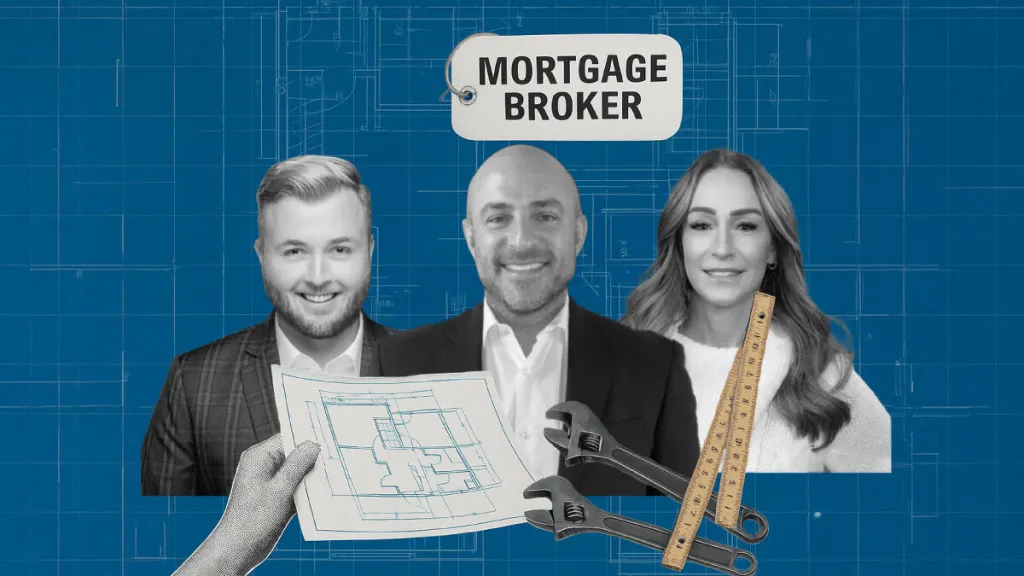Transitioning from the structured environment of a large retail mortgage company to an independent brokerage is a significant leap for loan officers. This journey comes with its own unique set of challenges, from selecting the right technology stack to navigating unexpected hurdles and identifying crucial resources.
However, for many, the allure of greater control and better pricing for clients outweighs these initial difficulties. We spoke with three former retail loan officers who successfully made this shift, sharing their personal experiences and the blueprint they followed to launch their own independent brokerages.
Stacey Melton’s Leap of Faith: Reasy Financial
For Stacey Melton, now Vice President of Arizona-based Reasy Financial, her broker journey began with an unconventional partnership. She found her business partner, Jason Servais, through a shared business coach. “We had the same business coach… and the business coach was like, ‘OK, I coach Stacy, I coach Jason. You both are complaining about the same things. Maybe you two should meet each other.'”
Building Reasy Financial
Melton recalled, “So we met each other and had all the same pain points, all the same visions, all the same core values of how we run our business.” This shared vision laid the foundation for Reasy Financial. They made a quick, decisive move, leaving their previous companies on January 31, 2023, and officially launching Reasy on February 1.
Overcoming Early Challenges
Melton admitted that 2023 was a struggle, requiring significant effort to keep the new business profitable, as she didn’t bring any of her past clients with her. However, the start of 2024 brought a remarkable turnaround. The company “took off,” rapidly scaling up to 20 employees. Melton attributes much of their early success to their partnership with United Wholesale Mortgage (UWM).
“UWM was definitely instrumental in our success and getting off the ground with being able to just hit the ground running,” she explained. She particularly values UWM’s commitment to supporting brokers: “I love everything that UWM supports and represents, and they want our clients to stay with us. Like, that’s what I love, that Mat [Ishbia, UWM CEO] is never going to be consumer direct. He’s never going to take a client from any broker.”
The Brokerage Advantage: Flexibility and Control
Melton also addressed a common misconception about mortgage brokers lacking control in a transaction. She clarified the core difference: “As a retailer, you have a box, and every loan that you send me, every buyer you send me, has to fit in that box.
All I have is this box and that interest rate. But when I become a broker, I no longer have to make your clients fit into this box — I can find the loan product for your client.” This highlights the expanded flexibility and client-centric approach that independent brokerages can offer.
Linus Thalman’s Efficient Transition: Golden Mortgage
Linus Thalman, CEO of Michigan-based Golden Mortgage, made his move from CrossCountry Mortgage to the broker space in March 2024. He also chose to partner with UWM.
Why UWM?
Thalman found UWM’s approach refreshing: “Once I started conversations with Mat and his team, it was refreshing to see that they’re like, ‘No, no, we want we work for you. We need to earn your business, because there are multiple options.’” This clear commitment to supporting brokers made UWM an easy choice for his preferred lender.
Increased Profitability and Lean Operations
From a profit-and-loss perspective, Thalman reports doing significantly better than if he had remained at a retail shop. He’s achieved remarkable efficiency. “As far as my production goes… two years ago on the retail side [it] would take me five people — three loan partners in taking leads, a corporate branch processor, and I would I would need a closer,” he explained.
Now, his operation is lean, consisting of just himself and one loan partner, yet they achieve the same output with a fraction of the overhead costs. This showcases the potential for increased profitability and operational efficiency in the broker model.
Blake Bianchi’s Tech-Forward Approach: Future Mortgage
Blake Bianchi, CEO of venture-backed Future Mortgage in Idaho, launched his company in 2021. With prior experience owning another broker shop and serving as an area manager for loanDepot, Bianchi was well-versed in both retail and broker models.
Transparency and Cost Savings
Bianchi points to a key driver for many transitioning to the broker side: “I would say that a majority of people start their own broker shops or go to the broker side because they want transparency and pricing.” He added, “Most of the people transitioning are transitioning because the cost structures at retail lenders are very high, and the loan officers end up covering the cost of other parts of the company that have high costs.” Independent brokerages can often offer more competitive pricing to clients due to their lower overhead.
Hybrid Model and Technology Development
Future Mortgage operates a unique “half lender and half broker with a technology division.” Bianchi has been developing an in-house customer relationship management (CRM) and point-of-sale (POS) software called “Clear” for three years, though it has yet to launch.
Currently, the company utilizes existing solutions like ARIVE and various software-as-a-service (SaaS) products. Unlike Melton and Thalman, Bianchi’s company partners with Rocket Mortgage, highlighting the diverse options available within the wholesale lending space.
Balancing Support and Cost
Bianchi acknowledged the trade-offs: “I think that one of the hard parts about the retail side is that it costs a lot. Like, your pricing is usually much higher, but you do have a ton of support, right?” He notes that when loan officers go independent, they can sometimes feel isolated. “A lot of the big broker shops, the loan officers are on an island, and so they don’t get that [support,] it’s cheaper and you get a better rate, but maybe they don’t feel as much support.”
Future Mortgage aims to bridge this gap by offering robust support to its loan officers: “So for our brokerage, we offer a ton of support. … We give you all the resources of a retail company.”
Honing the Broker Shop Craft: Key Insights
The former retail loan officers offered valuable insights for those considering the shift to an independent brokerage.
Experience is Key
Melton stressed that becoming a successful broker often requires being a more “seasoned” loan officer. “People who are just getting in the business I don’t think would go broker because they don’t know what they’re doing yet,” she cautioned. “For us, the risk is too high. We don’t hire anybody who’s not experienced… because we don’t have time to change and train anybody.
I think newer people getting in probably start with retail, which is great to cut your teeth.”
Challenges of Scaling
Bianchi concurred, noting the seemingly low barrier to entry for starting a brokerage. “The barrier to entry to start a mortgage brokerage is fairly easy, and a lot of people try to do it, but they come to realize there’s a lot of capital involved in scaling a company.” He also highlighted the significant time commitment required for regulatory compliance: “The audits we get as a brokerage, we get audits every four or five, six months… It becomes a full-time job for me just to get through these audits.”
Weighing the Benefits
Ultimately, while the potential for increased earnings is a draw, Bianchi cautioned that it might not always outweigh the operational demands. “I think people start brokerages thinking that they’re going to make a ton more money doing it, and then they kind of realize a lot of the trade-off for how much time you have to put into running the brokerage maybe is not as beneficial as just joining a brokerage that’s already set up.”
His advice for loan officers considering independence? They are “better off joining a brokerage already offering all the support, and just doing a DBA or creating their own branding,” rather than trying to build a fully supported operation from scratch. This emphasizes that while going independent offers significant freedom, joining an established, supportive brokerage can often provide the best balance of benefits for individual loan officers.








